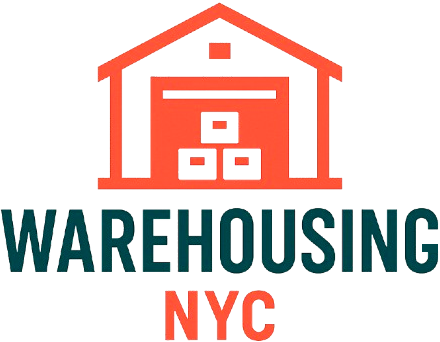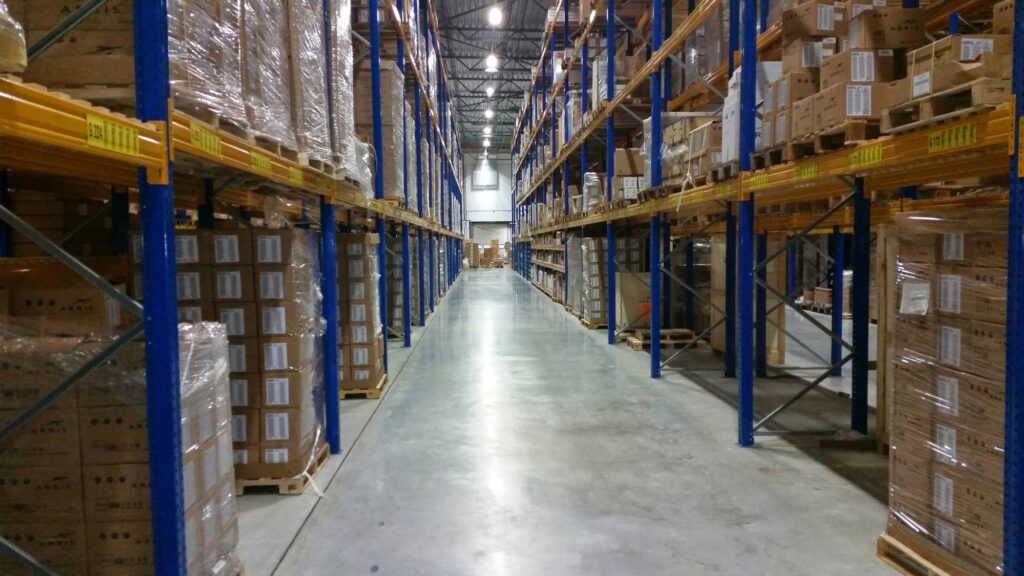Startups entering the eCommerce market face a common challenge: managing logistics while trying to grow fast. As online sales increase, so do the complexities of shipping, warehousing, inventory control, and customer satisfaction. For early-stage companies, these functions often become bottlenecks. Fortunately, fulfillment services for startups offer a practical path to scale without overloading internal operations.
Here’s how startups can use professional logistics services to speed up growth.
Table of Contents
Key Takeaways
✔ Products are housed in secure, professional storage facilities, which frees up space that startups can use for core operations.
✔ Reliable pick, pack, and ship processes make order processing faster and more accurate, reducing delays and mistakes.
✔ Seamless tech integration with eCommerce platforms eliminates manual work by automating orders, tracking, and inventory updates.
✔ Custom packaging options enhance brand perception by allowing startups to deliver a polished, branded unboxing experience.
✔ Strategic warehouse locations help speed up delivery and reduce shipping costs by placing inventory closer to customers.
✔ Flexible contracts and volume-based pricing support scalable growth without locking startups into long-term commitments.
✔ Operational tasks shift to fulfillment experts, allowing startups to save labor and use real-time data for smarter decisions.
Why Fulfillment Services for Startups Are a Growth Catalyst
For startups, every minute and every dollar counts. Setting up an internal fulfillment system requires space, staff, and software—resources that could otherwise fuel marketing or product development. Instead, using fulfillment services for startups means offloading complex logistics tasks to specialists.
These services streamline inventory storage, order picking, packaging, and shipping. Faster deliveries result in better customer satisfaction, while automation reduces the risk of human error. Most importantly, fulfillment partners provide scalable support. As demand increases, services scale accordingly—without the need to hire new employees or lease larger warehouses.
With the right strategy, fulfillment services for startups free founders to focus on what matters: product, branding, and customer growth.

5 Common Fulfillment Options for Pre-Revenue Startups
Before generating consistent revenue, startups must remain agile and cost-conscious. Early logistical strategies often involve warehousing products at home or manually packing orders. While this may work initially, it limits scalability and consumes time that should be spent on growth. Thankfully, there are several fulfillment options for pre-revenue startups that offer low-risk, flexible solutions tailored to early-stage needs.
These options work for pre-revenue startups for the following reasons:
- Low Commitment: Most solutions require minimal setup and offer usage-based pricing.
- Market Testing: Startups can gauge product demand and shipping workflows before investing heavily.
- Rapid Iteration: Easy to make changes to packaging, delivery methods, or fulfillment partners as needed.
By exploring the right fulfillment options for pre-revenue startups, founders can prepare for future growth without overextending resources. These options help keep operations lean while laying the groundwork for a scalable logistics strategy.
1. In-House Fulfillment
- Control: Startups retain full oversight of inventory, packaging, and shipping.
- Customization: Easy to personalize packaging and add handwritten notes or branded inserts.
- Best for: Founders who want hands-on involvement and have low order volumes.
- Consideration: Labor-intensive and time-consuming; limited by available space and bandwidth.
2. Dropshipping
- No Inventory Required: Products are shipped directly from the supplier to the customer.
- Low Overhead: No warehousing or packaging costs.
- Best for: Testing multiple product ideas or selling through online marketplaces.
- Consideration: Limited control over product quality, shipping speed, and returns.
3. Third-Party Logistics (3PL)
- Professional Handling: Storage, packing, and shipping are managed by logistics experts.
- Time-Saving: Reduces daily operational load so startups can focus on marketing and growth.
- Best for: Startups expecting moderate order volume or planning to scale quickly.
- Consideration: Monthly minimums or setup fees may apply, though some offer startup-friendly pricing.
4. On-Demand Fulfillment Services
- Pay-As-You-Go: Charges are based on usage rather than monthly commitments.
- Micro-Warehousing: Offers small, distributed storage units in strategic locations.
- Best for: Businesses still validating their market or running limited campaigns (e.g., crowdfunding).
- Consideration: Limited access to advanced tools and integrations compared to full-scale 3PLs.
5. Hybrid Fulfillment Models
- Mix and Match: Combine in-house fulfillment for flagship products with dropshipping for testing new SKUs.
- Flexible Scaling: Shift between fulfillment types as volume increases.
- Best for: Startups with diverse inventory types or seasonal sales spikes.
- Consideration: Requires more coordination and oversight between fulfillment channels.
6 Benefits of Partnering with a Fulfillment Center for Small Businesses
Partnering with a dependable fulfillment center for small business can significantly improve operational efficiency and long-term scalability. A fulfillment center is ideal for merchants lacking in-house warehousing and looking to avoid the added workload of managing inventory and handling shipping themselves.
Here’s what startups gain when they outsource logistics to a trusted fulfillment partner:
1. Inventory Storage in Professional Facilities
- Secure Environment: Products are stored in climate-controlled, insured warehouses.
- Organized Systems: Inventory is tracked using barcode scanning and warehouse management software.
- Space Efficiency: Frees up office, garage, or storage space that could be better used for core business operations.
2. Streamlined Order Processing
- Speed and Accuracy: Orders are picked, packed, and shipped with precision, reducing delays and errors.
- Peak-Season Support: Fulfillment teams can handle high order volumes during holidays or promotions without compromising service quality.
- Returns Handling: Some centers manage returns and restocking, which simplifies the reverse logistics process.
- Cost Efficiency: Order picking generally represents approximately 55% of a warehouse’s total operating expenses, so outsourcing this task can lead to major cost savings for startups.
3. Seamless System Integration
- eCommerce Sync: Connects directly with platforms like Shopify, WooCommerce, Amazon, and Etsy.
- Real-Time Updates: Orders, tracking numbers, and inventory levels are automatically updated.
- Reduced Manual Work: Automation eliminates the need to input shipping details or update stock levels by hand.
4. Branded Customer Experience
- Custom Packaging Options: Include inserts, thank-you cards, or branded boxes to enhance unboxing.
- White-Label Shipping: Packages are sent with the business’s name—not the fulfillment center’s.
- Tracking & Notifications: Customers receive real-time shipping updates and confirmations.
5. Nationwide or Regional Coverage
- Strategic Warehouse Locations: Storing inventory closer to major customer hubs reduces delivery times.
- Lower Shipping Costs: Shorter delivery distances mean more affordable shipping options.
- Faster Delivery Options: Enables startups to offer 2-day or next-day shipping even without their own warehouses.
6. Operational Efficiency
- Labor Savings: No need to hire warehouse staff or manage fulfillment in-house.
- Focus Shift: Founders and teams can prioritize product development, marketing, and customer service.
- Data-Driven Decisions: Many centers offer dashboards that track fulfillment metrics in real time.

How Startups Scale with 3PL Partners
A well-chosen 3PL becomes a strategic partner. The most successful startups understand how startups scale with 3PL partners by treating logistics not as a cost center, but as a driver of speed, savings, and customer loyalty. With the right 3PL, early-stage businesses are better equipped to scale with confidence.
Here are the key ways 3PL partnerships help startups scale efficiently and sustainably:
1. Unlock Broader Market Access
- Nationwide Distribution: 3PL providers have multiple warehouse locations, allowing startups to offer fast shipping across the country. This improves delivery reliability and enables eligibility for programs like 2-day shipping or same-day delivery in key regions.
- International Reach: Many partners offer global shipping, enabling startups to expand into international markets without additional infrastructure. This global capability helps reduce barriers to entry in new countries and tap into fresh customer bases.
- Local Fulfillment Advantage: By fulfilling orders closer to end customers, shipping times and costs are significantly reduced. This also reduces the environmental impact of long-haul deliveries, supporting sustainability initiatives.
2. Leverage Advanced Fulfillment Technology
- Real-Time Inventory Tracking: Startups get live updates on stock levels, reducing overselling or stockouts. This enables better forecasting and timely reordering, avoiding revenue loss due to stock issues.
- Automated Order Routing: Smart systems automatically send orders to the nearest fulfillment center, optimizing delivery speed. This minimizes transit time and improves carrier efficiency, especially during peak periods.
- Performance Dashboards: Detailed analytics provide visibility into shipping times, order accuracy, and customer satisfaction. These insights empower startups to identify bottlenecks and improve operational KPIs.
3. Scale Quickly Without Operational Overhead
- No Staffing Requirements: Startups avoid hiring warehouse teams, especially during peak seasons. This allows internal teams to focus on growth, marketing, and product development instead.
- On-Demand Resources: As order volume increases, 3PLs adjust staffing and space automatically. This flexibility ensures smooth scaling without the lag of recruiting or facility expansion.
- Faster Launch Capability: Startups can introduce new products or enter new markets quickly without expanding internally. This agility is crucial in testing new ideas and responding to emerging trends.
4. Reduce Fulfillment Costs
- Volume Discounts: 3PLs negotiate bulk shipping rates with carriers, passing savings to startups. These savings can be reinvested into customer acquisition or product improvements.
- Efficient Packaging: Optimization software ensures orders are packed in the most cost-effective way. This reduces dimensional weight charges and helps improve sustainability through less waste.
- Lower Overhead: Eliminates the need for leasing space, purchasing equipment, or managing logistics teams. It also reduces liability and administrative burdens associated with facility management.
5. Mitigate Risk and Increase Flexibility
- Surge Management: 3PLs are prepared for spikes in demand during promotions, holidays, or viral campaigns. This ensures consistent service levels even under pressure, preserving brand reputation.
- Reverse Logistics Support: Simplifies handling of returns, exchanges, and restocking. A streamlined return process builds customer trust and encourages repeat purchases.
- Backup Systems: Redundancies and established protocols ensure continuity during supply chain disruptions. This provides peace of mind during unforeseen events like weather delays or carrier strikes.
6. Gain Strategic Insights and Expert Support
- Logistics Consultation: Many 3PLs offer operational advice, helping startups optimize inventory and shipping strategies. These insights often lead to smarter growth and cost-saving decisions.
- Market Trends: Partners often provide data on product performance, seasonal trends, and customer behavior. Leveraging this intelligence helps refine marketing and inventory planning.
- Custom Solutions: Providers that understand how startups scale with 3PL partners can tailor services as needs evolve. Personalized strategies ensure long-term alignment as the business grows.
7. Enhance the Customer Experience
- Faster Delivery: With optimized fulfillment routes, customers get their orders faster and more reliably. Quick delivery boosts satisfaction and increases the likelihood of repeat business.
- Branded Unboxing: Some 3PLs support custom packaging and inserts to maintain brand consistency. This creates a memorable unboxing experience that can encourage social sharing and loyalty.
- Accurate Orders: Automated systems reduce shipping errors, which directly improves customer satisfaction. Fewer mistakes mean lower return rates and better overall reviews.
How to Choose Top-Rated Fulfillment Services for New eCommerce Stores
Selecting the right logistics partner can make or break an eCommerce startup’s customer experience. Choosing the right top-rated fulfillment services for new eCommerce stores is a long-term investment in operational excellence. With the right partner, startups can stay lean, maintain customer satisfaction, and grow with confidence—without constantly worrying about logistics.
Here’s how to evaluate and choose the right provider
1. Technology Compatibility
- Platform Integrations: Ensure the service supports seamless integration with platforms like Shopify, WooCommerce, BigCommerce, or Amazon.
- API Access: For custom systems, confirm the provider offers open APIs for deeper integration and automation.
- Real-Time Data Sync: Look for platforms that update inventory, order status, and tracking automatically to minimize manual work.
2. Transparent Pricing & Service Levels
- Clear Fee Structure: Choose providers with straightforward, easy-to-understand pricing—avoid those with hidden storage, pick-and-pack, or return fees.
- SLA Definitions: Service Level Agreements should detail order processing times, shipping deadlines, and return handling to hold the provider accountable.
- No Surprise Costs: Top providers disclose surcharges for things like peak season volume, special packaging, or international shipping upfront.
3. Strategic Warehouse Locations
- Proximity to Customers: Warehouses in or near your target regions help reduce delivery times and shipping costs.
- Multi-Zone Fulfillment: Some providers offer bi-coastal or multi-state distribution to help deliver faster across a wider area.
- Cross-Border Capabilities: If international sales are in your roadmap, ensure the provider has experience in customs compliance and international delivery.
4. Proven Scalability
- Flexible Order Volumes: Providers should accommodate everything from a handful of orders per week to hundreds per day.
- Support for Product Expansion: Confirm that they can handle multiple SKUs, bundling, kitting, or special handling as your catalog grows.
- Infrastructure Readiness: Ask about warehouse capacity and their ability to onboard new clients during peak seasons or sudden growth spikes.
5. Startup-Friendly Onboarding
- Minimal Setup Requirements: Top providers make it easy to get started without long contracts or complex setup fees.
- Dedicated Account Management: Look for teams that specialize in supporting new eCommerce stores with training and guidance.
- Testing Environment: Some offer test environments or trial runs to evaluate performance before full rollout.
6. Performance Monitoring & Communication
- Live Dashboards: Visibility into order status, inventory, and shipping performance helps startups stay in control.
- Alerts & Notifications: Automated alerts for delays, low stock, or delivery exceptions reduce surprises.
- Accessible Support: Ensure the provider offers responsive support via chat, phone, or email—and ideally, a dedicated rep.
7. Reputation & Trustworthiness
- Verified Reviews: Platforms like G2, Trustpilot, or Capterra often feature real feedback from similar businesses.
- Case Studies & Referrals: Ask for examples of other startups the provider has helped scale.
- Longevity & Expertise: While new providers may offer aggressive pricing, experienced fulfillment services tend to offer more reliable, tested systems.
8. Returns Management & Reverse Logistics
- Streamlined Returns Processing: Choose a provider with a clear, efficient process for handling returns, including inspection, restocking, or disposal options.
- Customer-Friendly Policies: Ensure the return process is easy for customers, with prepaid labels, portal access, and transparent timelines to maintain satisfaction.
- Data Insights from Returns: Advanced providers analyze return reasons to help identify product issues, improve packaging, or refine your listings and descriptions.
Frequently Asked Questions
What are the 4 types of fulfillment?
The four types of fulfillment are in-house fulfillment, third-party logistics (3PL), dropshipping, and hybrid fulfillment. In-house fulfillment means the company handles packing and shipping internally. The other methods outsource or combine resources to improve efficiency, cost control, and scalability
What are the three types of fulfillment centers?
The three types of fulfillment centers are eCommerce fulfillment centers, retail distribution centers, and hybrid fulfillment centers. eCommerce centers handle direct-to-consumer online orders, while retail centers serve physical store inventory. Hybrid centers manage both models to meet diverse supply chain needs.
What are the 7 steps of order fulfillment?
The seven steps of order fulfillment are receiving inventory, storing products, order processing, picking items, packing orders, shipping, and handling returns. Each step ensures accurate and timely delivery to the customer. A smooth process improves customer satisfaction and operational efficiency.
What is the difference between fulfillment and logistics?
Fulfillment refers to the complete process of receiving, processing, and delivering customer orders. Logistics focuses more broadly on the transportation, warehousing, and movement of goods across the supply chain. Fulfillment is a component within the larger logistics ecosystem.
Is a fulfillment center a zero level channel?
No, a fulfillment center is not a zero-level channel. A zero-level channel involves direct sales from the manufacturer to the customer with no intermediaries. Fulfillment centers act as intermediaries that handle storage, packing, and shipping on behalf of sellers.
Ready to Scale Your Startup? Partner with Warehousing NYC By Best!
If you’re a growing business in New York, NY, looking to simplify your logistics and scale faster, now is the time to take action. Warehousing NYC By Best offers the professional infrastructure, flexible fulfillment options, and advanced tech integrations startups need to compete—without the overhead. Trusted by local businesses across New York, NY, Warehousing NYC By Best is more than a service provider; it’s your fulfillment partner.
Get started with Warehousing NYC By Best in New York, NY, and take the next step in your growth journey today.

